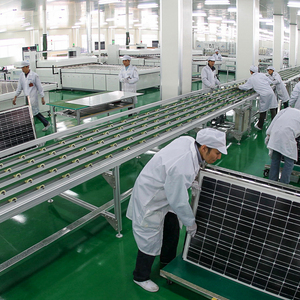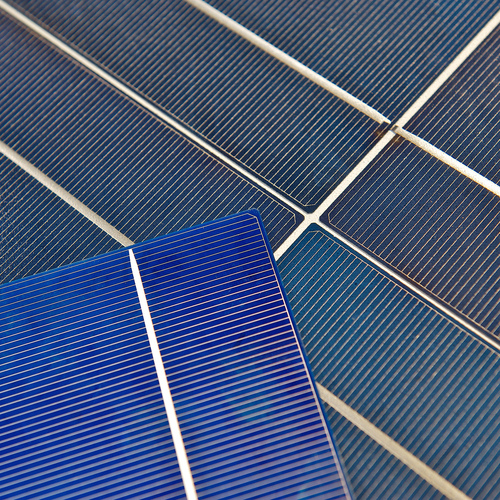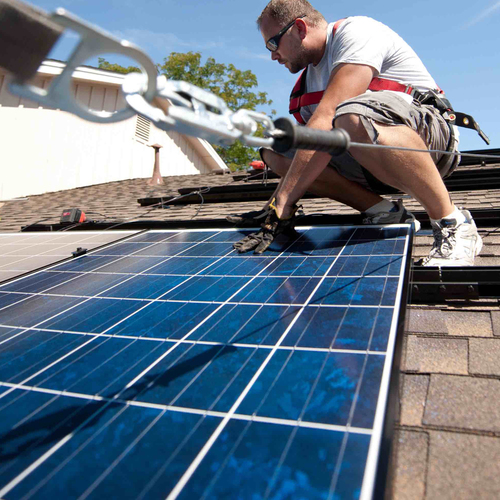
An investigation by the U.S. Commerce Department into solar panels produced in four Southeast Asian countries could cost the solar industry thousands of jobs and is already responsible for widespread project delays and cancellations, a solar trade group says.
The department announced late last month that it is looking into claims that importing solar panels from Cambodia, Malaysia, Thailand, and Vietnam amounts to a circumvention of anti-dumping limits that have been imposed on China.
The case could result in retroactive tariffs as high as 240%, according to an article posted by the Los Angeles Times, and threatens as as many as 80% of solar protects that are currently planned in the U.S.
Heather Zichal, who leads the American Clean Power Association, said the Commerce Department action “signals that the Biden Administration’s talk of supporting solar energy is empty rhetoric.” She said the probe “drove a stake through the heart of planned solar projects and choked off up to 80% of the solar panel supply in the U.S.”
The Solar Energy Industry Association also took issue with the department’s announcement. In a written statement, the organization’s president and CEO Abigail Ross Hopper, said she hoped the government would complete its work quickly and “end this unnecessary roadblock” to wider deployment of renewable energy.
“The investigation is based on a meritless trade case that is hammering the solar industry in real time and diminishing our efforts as a country to tackle climate change,” she said.
The trouble started with a complaint filed by a small manufacturer of solar panels in California called Auxin Solar, which alleged that panels are assembled in those four countries with Chinese-made components. Auxin Solar’s CEO, Mamun Rashid, said panel imports amounted to “pervasive backdoor dumping” of solar panels by China.
According to a post at Utility Dive, the SEIA has called on the department to issue a preliminary decision against Auxin’s complaint. An investigation could take up to a year for a final ruling, placing pressure on developers to find new suppliers.
In February, President Biden announced that tariffs on imported solar panels that were first imposed by the Trump administration would be extended, although the number of cells that could be imported without tariffs would be doubled, The New York Times reported. The administration also said it would open talks with Mexico and Canada to allow those countries to export solar goods to the U.S. duty-free, and that a type of two-sided panel would be exempt from duties.
Some U.S. manufacturers criticized the decision, claiming that the exemptions would keep them vulnerable to cheap Chinese panels. Among them was Mark Widmar, CEO of First Solar.
According to the SEIA, a poll among its members found that 74% of the respondents said that their supply of solar modules has been canceled or delayed in the wake of the Commerce Department announcement.
Although the SEIA got more than 200 responses from its members after launching the survey, only 10 of them were residential developers, according to Utility Dive. That suggests the residential solar market could be somewhat insulated from market uncertainties because they buy their panels from U.S. distributors and don’t import them directly.
The industry is already being hampered by supply chain constraints that have helped push up the installed price of solar by as much as 14% in the last quarter of 2021 when compared to the same period a year earlier. Price hikes for residential projects appeared lower, up about 5% from a year earlier.
SEIA said 84% of all U.S. solar module imports come from the four countries affected by the Commerce Department probe, and that there isn’t enough non-Chinese capacity elsewhere to meet demand. It would take years to bring the U.S. supply chain to a point where it could take up the slack.
Scott Gibson is a contributing writer at Green Building Advisor and Fine Homebuilding magazine.
Weekly Newsletter
Get building science and energy efficiency advice, plus special offers, in your inbox.















9 Comments
I’m always for advancing PV systems in our homes, even to the point that I think it should be codified, at least to Zero Energy Ready. Having said that, I do agree that solar PV dumping, usually with lower efficiency and mechanical deficiencies, all to lower the price of a system, will work negatively in our industry especially for the companies that install good PV systems at reasonable prices.
For anyone who paid $10-16 per kW a decade or two ago, paying $3-3.30 per kW for the best systems available is very reasonable. It’s worth mentioning that at those prices, you can pay off a system of a full ZEH in 7-10 years, and after that, you’ll have free energy. That’s better ROI than most investments in Wall Street.
Rooftop solar has much greater penetration in Australia, where it typically costs less than half what we pay in the US. With government incentives, it's often around $1 per watt.
My current kWh usage for a mostly-electric house only costs about $1200 a year (admittedly that doesn't include an electric car yet). Solar installation is expensive in Seattle, and electricity is cheap, so it takes longer for solar panels to pay for themselves. I will be glad if they turn out to do so faster than I expect, but it's not the primary reason I hope to install solar.
Thanks for posting on this issue, interesting history.
I would not say "trouble started with a complaint filed by a small manufacturer of solar panels". The trouble appears to have started long ago in efforts to circumvent the US gov't's AD and CVD orders on CSPV cells and modules from China, original orders of 2012 and continued in 2019. It appears that SolarWorld Industries America Inc. was the petitioner back then and that:
"The petition included factual information from August 24, 2009, through October 11, 2011. The factual information included commentary about the closing and/or bankruptcy of U.S. solar cell companies, articles discussing subsidies given to Chinese solar cell producers in the PRC, and articles concerning actions being taken by the U.S. Trade Representative."
The present petitioner, Auxin Solar, is a small, minority and woman owned manufacturer that has the right to request an inquiry. The years of data in the request appear compelling (see plot). If there are violations of the prior orders, shouldn't the Dept of Commerce weigh in? How can this be the fault of the the present petitioner? Also, did some in the US facilitate circumvention? (to the detriment of US industry/manufacturers?): "It would take years to bring the U.S. supply chain to a point where it could take up the slack." I think the US was supposed to get back on track in 2012?
Auxin petition: https://www.seia.org/sites/default/files/2022-02/Circumvention%20Petition%20Filed%202.8.22.pdf
From the Executive Summary:
"Publicly available evidence that is reasonably available to Auxin Solar establishes that CSPV cell and module assemblers in Malaysia, Thailand, Vietnam, and Cambodia are circumventing the AD and CVD Orders on CSPV cells and modules from China. Pursuant to 19 C.F.R. § 351.226, this petition sets forth the required regulatory information to establish that circumvention is occurring and for Commerce to initiate these inquiries within 30 days after the filing of the request."
This reminds me of something similar which occurred with a Chinese aluminum company.
https://www.businessinsider.com/a-chinese-billionaire-may-have-hidden-6-of-the-worlds-aluminum-in-the-mexican-desert-2016-9
https://www.wsj.com/articles/giant-aluminum-stockpile-was-shipped-from-mexico-to-vietnam-1480588228
Thanks John, fascinating. Did not know about that and I see some related lawsuits: https://www.latimes.com/california/story/2019-07-31/chinese-aluminum-scam-used-southern-california-as-base
I've been following a case where over 80 semi-tractor trailer loads of aluminum "went missing" in Detroit (2017-18) from an aluminum auto parts supplier, ending up with multiple local aluminum scrap dealers. That supplier was forced into receivership and had significant ties in China and Mexico; the insurance company asserts the "loss" isn't covered (no arrests) - the drama continues.
haha..Good lord.
You're not wrong about any of this PBP1. Auxin does seem like a good company and they certainly have the right to file an inquiry. And what is happening in those 4 countries does seem like it's circumnavigating the Chinese tariff issue. However, adding a tariff like this will absolutely cripple the solar industry in the short and medium terms. It will increase the cost of solar, both residential and commercial, which means a lot fewer systems installed. Obviously this wouldn't be a good thing for all of our efforts to slow down climate change in this country. It will also cost us hundreds if not thousands of good paying American jobs as installers have to lay people off due to the lack of available product and the huge interruption to demand for rooftop solar.
On top of that, hundreds of small business like ours will be very negatively impacted by these very sudden price hikes. All of the sold jobs we have will take a huge hit in terms of margin. Most of us solar installers are operating on fairly small Net Profit margins to begin with and dropping the margin on all of our sold projects could very well mean that us smaller installers don't turn a profit this year.
There's no perfect answer here. But we can all agree that the unintended consequence of halting a lot of the momentum the solar industry currently has at the cost of a LOT of jobs doesn't seem like a great idea. We can't let perfect be the enemy of good. Another more reasonable solution that is somewhere in between would be of greater benefit to the solar industry and those of us who care about climate change.
"Climate change" is driven primarily by fractional distillation of petroleum. Stop that activity, and "climate change" effectively stops.
How to stop that activity? Return to harvesting of on-site and nearby resources for processing, manufacturing, and finished product. Period. Full stop. There is a perfect answer here. And perfection in reality is not worth the trouble.
Log in or create an account to post a comment.
Sign up Log in